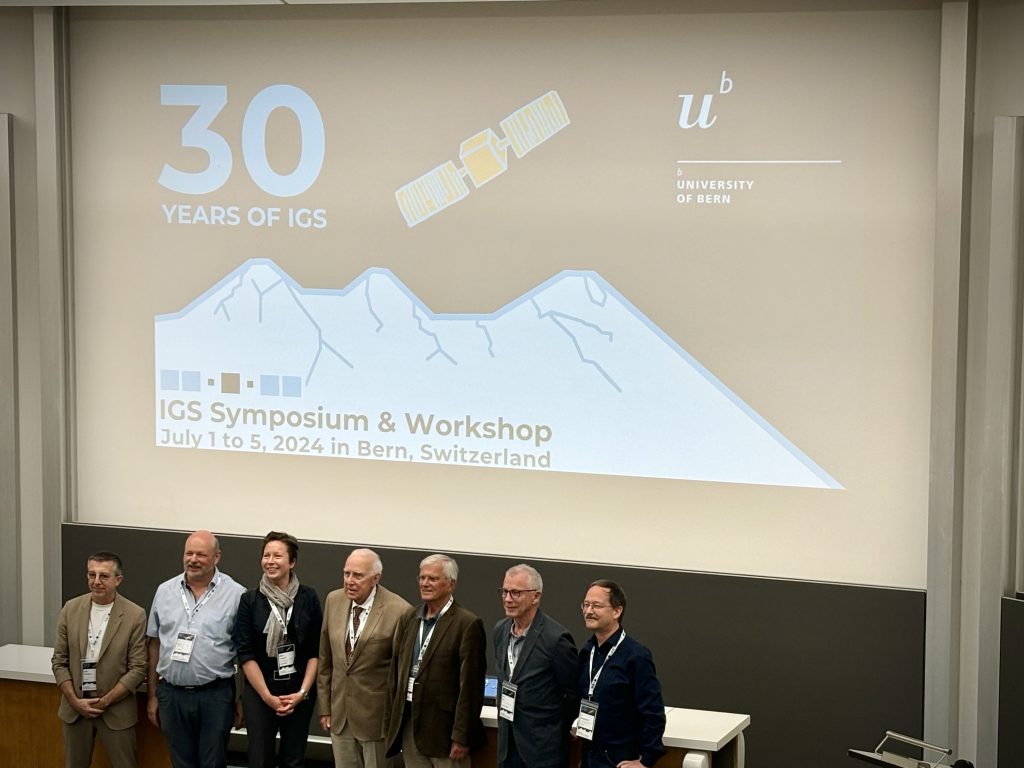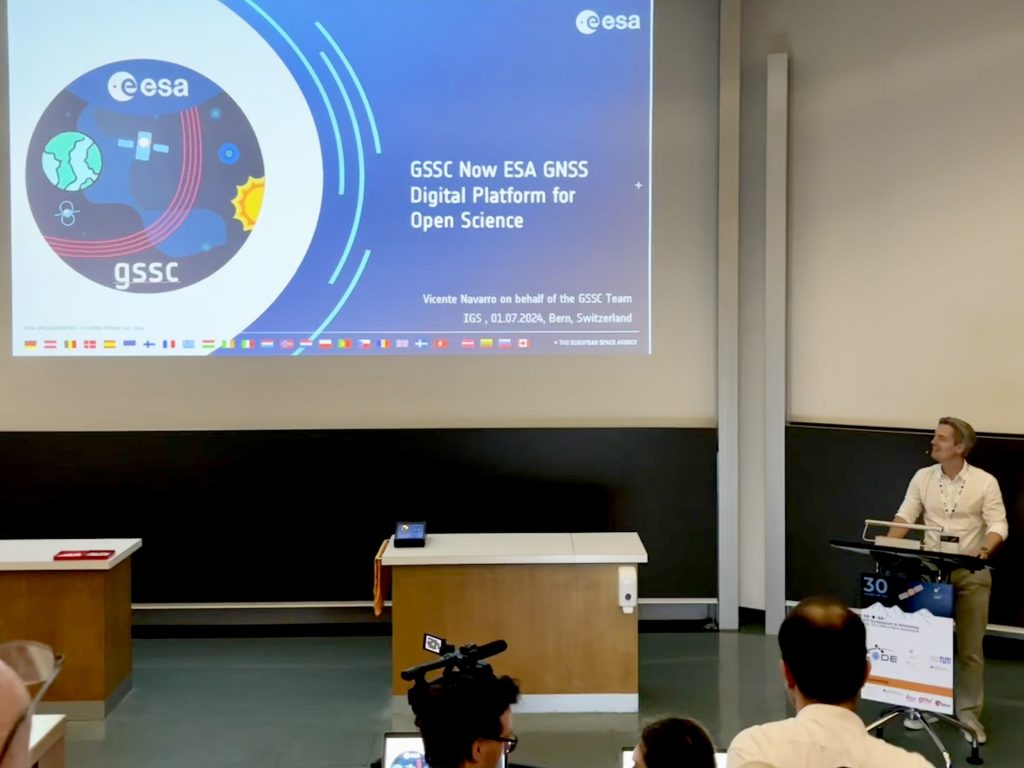
ESA’s GSSC Showcases Innovations at IGS 2024 Workshop
The European Space Agency’s GNSS Science Support Centre (GSSC) participated in the 30th International GNSS Service (IGS) Workshop, held from 1st to 4th of July in Bern, Switzerland. The event brought together top GNSS experts and representatives from GNSS data and analysis centers to discuss advancements and collaborations in the field. The GSSC team highlighted their role as a Global Data Centre for the IGS, alongside key players such as NASA’s CDDIS, ensuring free and global access to crucial GNSS data and products.

One of the key highlights of GSSC’s presentation was the introduction of the GSSC Now platform. This innovative digital platform offers a comprehensive suite of features designed to enhance traditional GNSS data archive and dissemination methods. Unlike conventional solutions that rely on FTP-based downloads and offline processing, GSSC Now provides an integrated environment where users can explore, analyze, and utilize GNSS information in real-time. This platform draws on data from ESA projects, space missions, and partner organizations, enabling a more dynamic and interactive experience for users.
GSSC Now features two main areas of interaction:
- Data Discovery and Access: Users can easily search and access a wide range of GNSS datasets.
- Interactive Analysis Tools: These tools allow for on-the-fly data visualization and preliminary analysis, supporting advanced GNSS-related research including ionospheric and tropospheric modeling and IoT data fusion.
The GSSC team showcased several case studies demonstrating how GSSC Now facilitates scientific exploitation of GNSS data, fostering new research opportunities and applications. Additionally, they outlined future development plans for the platform, emphasizing its upcoming role as PROAD of the GENESIS mission. This integration is expected to further enhance GSSC Now’s capabilities, positioning it as a pivotal tool in GNSS data processing and dissemination.

The workshop also featured other significant presentations by ESA and its collaborators. Highlights included a session on “Support for LEO-PNT Constellation Data in IGS Data and Product Files,” which addressed new data integration techniques for Low Earth Orbit positioning and navigation. Another notable presentation, “GENESIS: A Multi-Technique Geodetic Observatory in Space,” detailed plans for a groundbreaking observatory designed to advance geodetic research. Marco Falcone’s keynote, “Galileo and the Future of European Navigation,” provided insights into the future of Europe’s GNSS infrastructure.
The GSSC’s participation in the IGS 2024 Workshop underscores ESA’s commitment to advancing GNSS technology and fostering international collaboration in this critical field.
Full set of presentations will be released at IGS 2024 Workshop webpage in the upcoming weeks.


